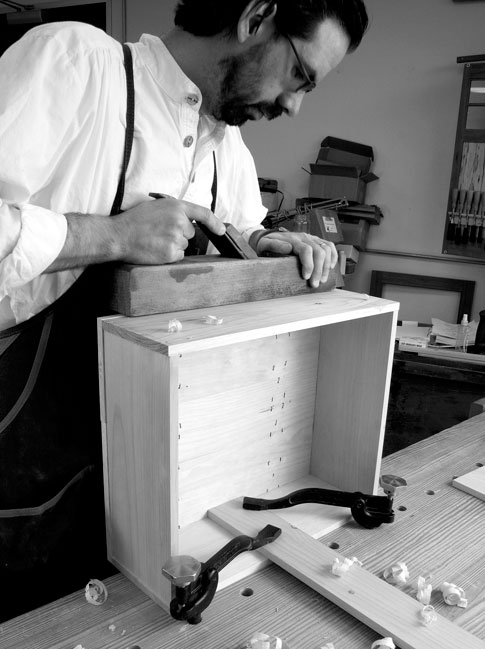
Like a lot of hand tool woodworkers, I wonder what it would be like to work wood in a time where mastering wood and tools was an essential skill to survival and success. After a few moments of reverie, I quickly thank my stars that I was born in the 20th century.
I am legally blind. Really. My vision is terrible. One time I let my eyeglasses prescription lapse, and then even with my glasses on I was considered legally blind (the diagnosis of the optometrist). Eyeglasses weren’t tolerated in early woodworking shops. Wear glasses, and you were sacked. It was a sign of being old.
When I was 15, I contracted pneumonia. I was so sick that I can remember clutching the rubbery bladder of my water bed (please don’t ask) and wishing I were dead. Had I been born before antibiotics, I probably would have gotten my wish.
I could keep going. When I was a kid, my front teeth stuck out like I was holding two little communion wafers between my lips. I have the upper body strength of a jellyfish. I got chicken pox twice. In other words, Natural Selection has been trying to weed me out of the garden for a long time, and it has only been through the grace of technology that I am still here and able to work wood.
So anytime I start thinking about how cool it would be to live in the time of Duncan Phyfe, I think how cool it is to be breathing right now.
Our new book “The Joiner and Cabinet Maker” paints a rather rosy picture of an apprentice’s life in a shop, and co-author Joel Moskowitz has tried to balance it with accounts of how horrible some apprenticeships were.
And I have tried to balance the narrative by remaining alive, even though by the 19th-century perspective, I should be dead or – even worse – the village idiot.
— Christopher Schwarz